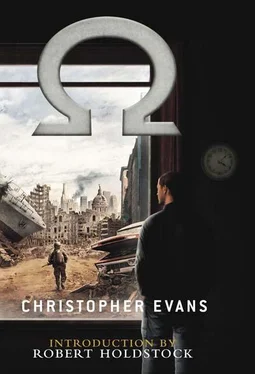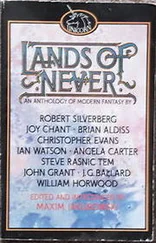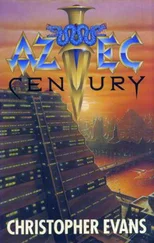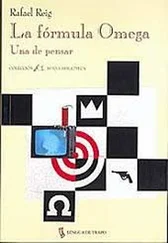It was Sir Gruffydd, who had risen again and was tapping a teaspoon against an empty champagne flute.
“Officers and gentlemen and those of uncertain pedigree,” he began, pausing when the predictable spate of laughter ensued. “We are gathered here today to witness—no, damn it, I’m reading from the wrong script again.”
He tossed an imaginary sheet of paper aside to more laughter. It came easily enough, like a collective release of tension, and subsided just as swiftly.
The field marshal now studiously composed himself, his face taking on a solemn air.
“I want to tell you of the grave and pressing dangers we confront,” he began. “The United States and its subject dominions have been pursuing a vigorous campaign of territorial encroachment along our borders and spheres of influence. Protracted high-level negotiations have failed to resolve these issues—indeed, they’ve served only to buy more time to intensify their operations. All our appeals for moderation and plain talking have fallen on unreceptive ears.
He paused and motioned to Giselle, who promptly passed him his walking stick. He leaned on it with both hands but remained straight-backed, conveying a sense of someone physically burdened but not bowed by the weight of his responsibilities.
“The Americans have recently developed what they term ECO—Earth Cleaving Ordnance, better known to us as DPMs. These missiles, launched from submarines or high altitude bombers, can deliver nuclear charges at sufficient depth to underground sites to destroy them completely. They are instruments of an offensive war, intended to destroy our subterranean command-and-control complexes both at home and on the continent. Which is why, ladies and gentlemen, we’re presently up here and not down there.”
There was the merest flurry of laughter, another exhalation of relief. Sir Gruffydd conspicuously showed no humour.
“We pointed out to the Americans that these weapons are in breach of our most recent arms restriction treaty, which forbids development of any new nuclear devices. I have to tell you that they were implacable, claiming that the weapons were not new but merely a refinement of existing technology. This is not a view we were able to share. It is essential we take measures to protect ourselves.”
He took a TV control from Giselle and pointed it at the screens. The picture on the central one changed from an airfield to the fleet in the Atlantic we had been shown earlier.
Owain stared numbly at it. He was hollow, without volition. I lunged, determined to take control. He teetered, and then I couldn’t sense him at all.
I heard Sir Gruffydd explain that the fleet was entering Alliance waters, and that a second task force largely composed of munitions ships and landing craft was heading north-east from the Azores. The Americans plainly intended a first strike on Alliance centres of operation, followed by landings on the west coast of Ireland and a rapid drive across the country to take Dublin and Belfast.
None of the other screens gave evidence of this: they were showing footage of Alliance mobilisation.
I steadied myself, expecting at any moment a resurgence of Owain. It didn’t come.
I contemplated Ireland and Sir Gruffydd’s assertions. To me it didn’t make strategic sense. An American invasion force there would be faced with supply lines so long and subject to disruption that it defied military logic. I stole a look at Carl Legister and saw that he was gazing at the screen with stony incredulity. And he, as much as anyone else, would surely have been well placed in the preceding months to anticipate US intentions.
“This is not the only threat we face,” my uncle continued. “In several of our frontier territories offensive enemy operations are about to be undertaken. Action to neutralise these dangers will naturally be the responsibility of our continental forces. It is the one to the British Isles that we must counter. And for that, the most radical measures are necessary.”
Now the audience plainly sensed the approach to the payoff. My uncle looked more sober than ever.
“Omega,” he said, not quite savouring the word. “I think most of us have heard of it.”
There was no laughter this time: they were merely eager to know.
“Some of you may have thought it was legendary, the expression of sublime hope. Well, it exists, and we possess it. And because we have no alternative we intend to use it to avoid our own destruction.”
My uncle glanced at a clock on the wall: it was almost four pm. Though the portholes I could see that daylight was rapidly fading.
“Observe the main screen,” Sir Gruffydd said, using the control. “Watch carefully.”
The picture on the central screen was still of the US fleet, but those on the two that flanked it had changed. One, captioned W. Eire, showed the new coastal fortifications I’d seen earlier; the other an extensive military installation ringed with airfields and missile silos. It was captioned Omaha, Nebraska, USA.
My uncle had timed his oration to near perfection. You might have looked away for a few moments and missed it. The central screen showed a high-level view of the fleet as slender pale bullet shapes arrned a mottled iron-grey field. Abruptly they vanished, leaving for the merest flicker of time two seamless ocean edges with utter darkness between them that flashed into one another, colliding with such force that they raised an enormous crest of white water that split the ocean like a bloodless wound.
Within seconds one of the flanking screens showed a flurry of movement as the Omaha installation vanished beneath a watery turmoil in whose explosive turbulence were fleeting glimpses of what must have been capital ships—great vessels of tens of thousands of tonnes, hoisted and upended, thrust through netherspace, voided onto one of the nerve centres of the American military in the heartland of their territory.
There was no sound. This made it only more awesome, something that transcended nature itself. But it was easy, and indeed essential, to imagine it: an oceanic thundering, accompanied by a cacophony of crashing, mangled metal. Easy to be transported into grandiose realms of patriotic imagery, to envisage the storm god Thor repeatedly striking his enemies with a celestial hammer, relentless and irresistible. These were Owain’s sentiments, I thought fleetingly; not mine. But I couldn’t escape his sense of awful thrill: I felt it myself. Didn’t all of us who were drawn to military exploits secretly yearn for it in the most shadowy and tremulous chambers of the heart? The pain-free catharsis of an apocalypse?
No one moved or spoke. The Omaha maelstrom slowly began to abate, leaving a strewn mass of naval wreckage that sloughed off torrents of water. I could imagine it gushing down ventilation shafts and escape hatches, inundating everyone below.
It was hard to know where to look, and whether to keep looking. On the central screen the white crest had begun to resolve itself into a pair of tsunamis already racing away from one another, swamping the hapless ships that had escaped the earlier swallowing. If the excision had gone deep enough to take a section out of the ocean bed, surely other waves would follow in their wake as the crust readjusted. Or would the sea in the vicinity boil as magma welled out?
Only the screen showing the teardrop coastal emplacements remained unchanged, looking exquisitely tranquil in comparison. It dawned on me that they had indeed been purpose-built to withstand a sea-borne invasion, not of men and arms but rather of the great waves that my uncle and other senior commanders knew would be thrown up by the use of Omega on the ocean.
How much longer did they have, the personnel inside them, before the first wave struck? Minutes? Hours? It was unlikely they would have been told much more than to hold fast if something struck them from outside. Don’t poke your heads outside under any circumstances, until you receive further orders. There would probably be monitoring devices, sophisticated stress and pressure gauges to measure the effect of the impact, operatives secretly assigned to the tasks. As much useful information would be garnered as possible. As a basis for future provision.
Читать дальше












